; Date: Sat Feb 29 2020
Tags: Doctor Who »»»» Doctor Who Season 12 »»»»
In Doctor Who Season 12, the season-long topic is the lie of the timeless child, and that the origin of The Time Lords was fake. The finale promises to have The Master present The Truth to The Doctor - as if The Master would ever tell the truth. The attached video makes the case that originally the BBC presented The Doctor as a brilliant HUMAN from the future, rather than an alien from another planet, and that the established lore of Gallifrey began with The Third Doctor.
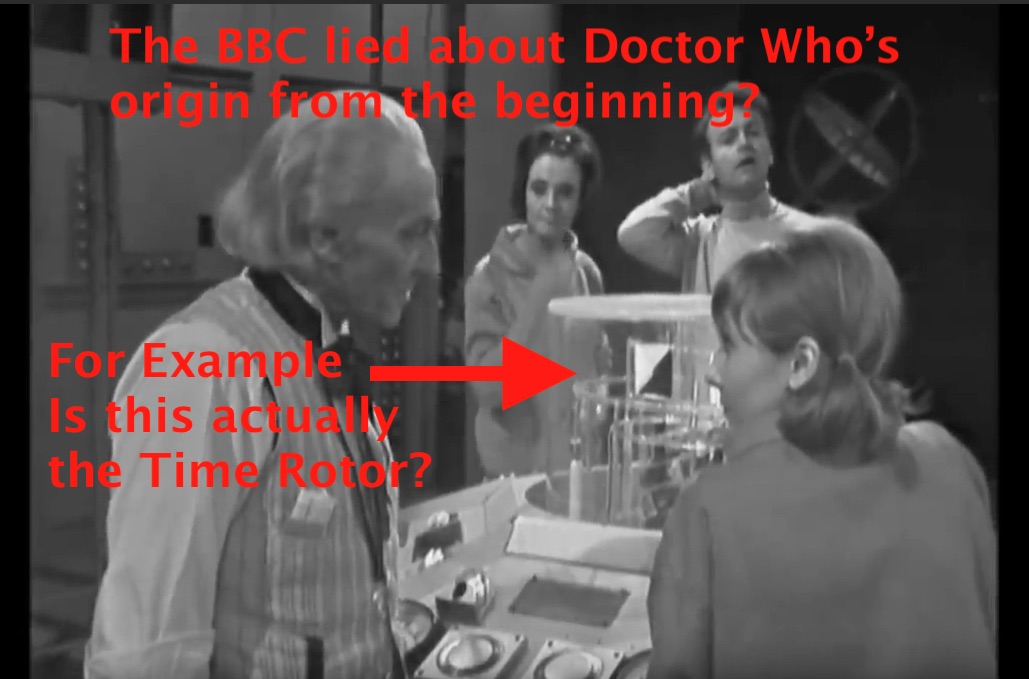
The reasoning in the attached video is extremely sound. Any of us who have watched the entire canon of Doctor Who should have picked up on this.
Most long-time fans of Doctor Who probably recognized that Gallifrey and The Time Lords were absent until the start of The Third Doctor, and the very tail end of The Second Doctor. We probably dismissed that as The BBC simply didn't get the story straight and went on with the new lore that The Doctor was from Gallifrey, the home to an ancient race of people called The Time Lords. But a clear look at the early episodes suggests The Doctor was human.
That is the conclusion reached in When The Doctor Was a Human Who Invented the TARDIS. (Attached below)
It's clear that by the end of The Second Doctor's time, the BBC had settled on the story line we now have about The Doctor's origin (Gallifrey, Time Lords, two hearts, etc). That leaves us with earlier episodes that tell a different origin of The Doctor, and how the BBC attempts to cover up or ignore the rewritten history we've been told.
The question is important to ponder on the eve of The Master's reveal of the lie he talked about in Skyfall 2.
What's implied in Skyfall 2 is that The Time Lord's who founded Gallifrey told a Big Lie to the population. The lie is buried in all of them. And the lie inspired The Master to destroy Gallifrey. That by itself is a feat, since The Daleks et al were unable to do so during The Time War.
But...
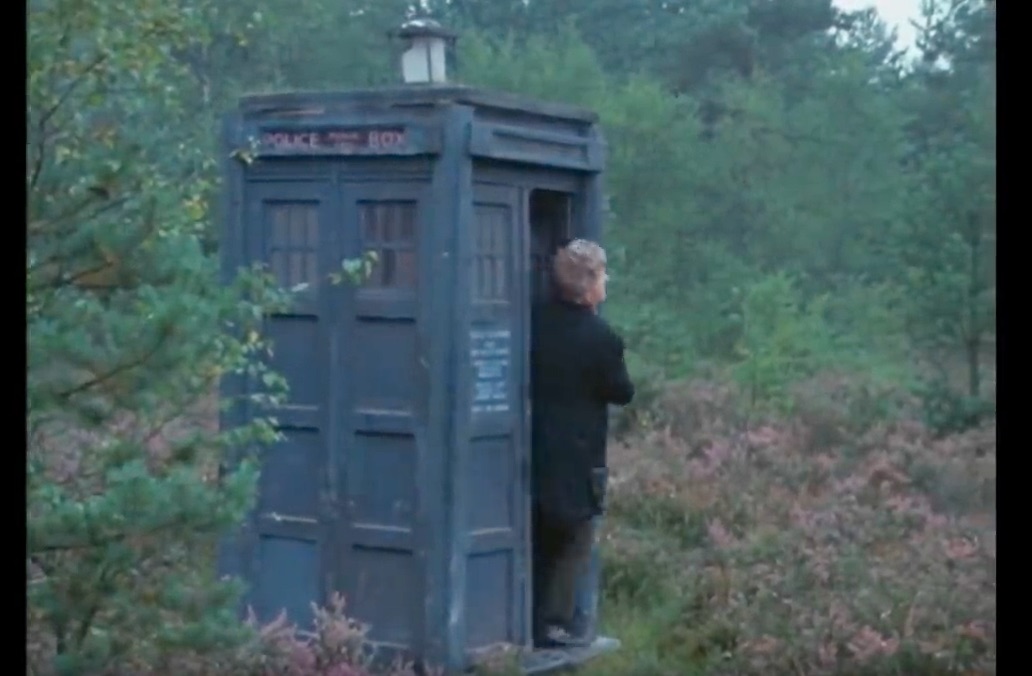
When Jon Pertwee's Doctor stumbled his way out of The TARDIS in his first episode, he told everyone he's not human, he has two hearts, because all Gallifreyans have two hearts, and oh by the way he's from another planet, that he is a Time Lord, etc. None of that established canon was said before that moment. Except, that is, for the very end of The War Games, a ten-part story in The Second Doctor's run which was the first appearance of The Time Lords.
In early Doctor Who episodes The Doctor says things about having built The TARDIS himself. In An Unearthly Child, the first aired episode of Doctor Who, we learn that Susan, The Doctor's grand daughter, invented the acronym TARDIS.
In the Peter Cushing televised movie named The Daleks, The Doctor is presented as a regular human who invents things. That movie is not recognized as Doctor Who Canon, but it still clearly says - The Doctor is Human.
This was not so clearly said in BBC's televised Doctor Who episodes. But during the first two Doctor's time there was ample opportunity to have The Doctor be an alien from another planet, but instead things were said to make him appear to be a human.
A key story for this is The Chase. In this story, The Doctor an the TARDIS crew are being chased across time and space by some Daleks. The Daleks at that point had just developed space travel, and more importantly time travel, and were hunting down The Doctor.
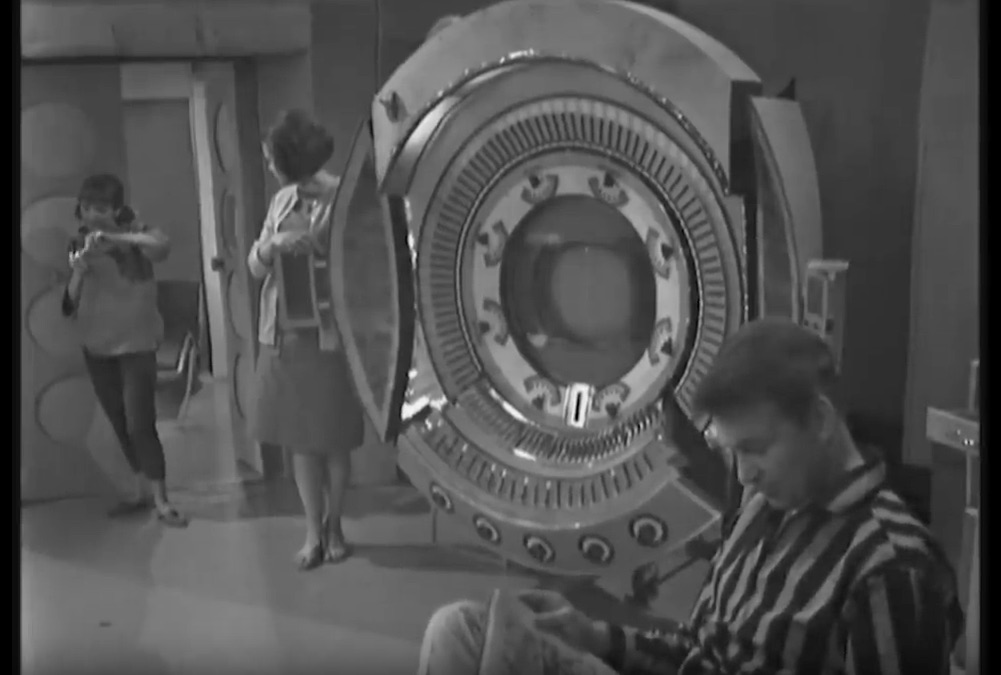
In the first episode, The Doctor is fixing up a Time Space Visualizer that The Doctor picked up in the previous episode, The Space Museum. This gimmicky gadget lets them view things across time and space, and in particular to let them know how far behind them the Daleks are in the chase.
In the dialog describing this gadget, The Doctor presents it as a thing children of his time built as toys similar to how children of the 1965 era built crystal AM radio's as toys.
In another bit of dialog, The Doctor is discussing the work of physicists in Earth's history. Ian, one of the crew members, and whose day job was as a science teacher at The Coal Hill School, talked about Einstein. The Doctor talked about someone named Vendemann who came later. Vicki, having come from a much later time period than Ian and Barbara, knew of Vendemann and that she'd learned of his theories as a child. That dialog is taken here to suggest that The Doctor is simply a human from an even more advanced time period than Vicki's time.
In other words, The Doctor described himself here as being from another time rather than from another planet. Likewise in other episodes Susan described them as being from another time rather than from another planet.
It is in The Chase where this distinction is most clear. Further, there is evidence that many details given in The Chase were later rewritten and changed. An example is this little scene
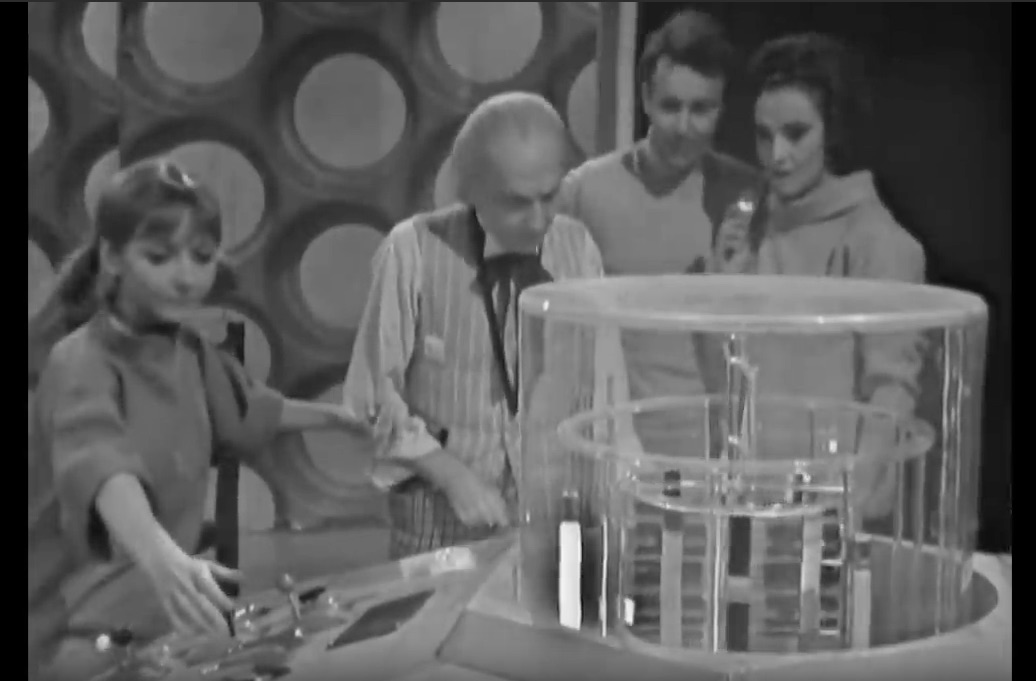
Vicki is trying to get The Doctor's attention, saying Doctor! Doctor! Look! The time rotor is slowing down while pointing at a dial on the console, not the column in the center of the console. It was this scene where the phrase Time Rotor was coined.
However over the show's history it is the center column that's become known as the time rotor, due to a mistake in a magazine years ago.
The BBC could have stuck with the time rotor being a dial on the console, and given another name to the central column. But they chose to change things around.
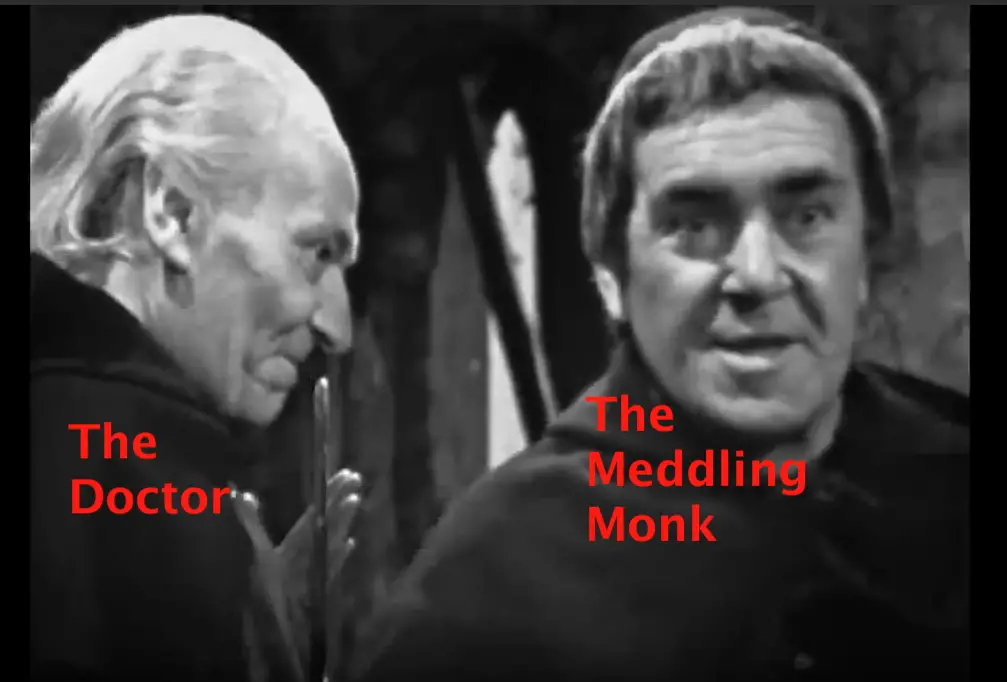
In the episode following, The Time Meddler, there is another opportunity to establish The Doctor as non-human. But the BBC skirts around that, again.
In that episode, the TARDIS lands in ancient England, in the year 1066. There is a party of Vikings about to land and draw the English King and his troops up north for a battle there. And at the same time a party of Normans is about to land further south. The latter group, in our history, conquered England in what is now known as The Norman Conquest, the key being their success at The Battle of Hastings.
That's the context of the story. The Meddling Monk is another person with a time machine, a TARDIS specifically, who enjoys traveling around Earth's history and meddling with things. He has a plan to change Earth's history, to speed up evolution of technology, etc.
Our modern thinking is that - oh, the meddling monk is just another Time Lord. But if so, why didn't they use that phrase in the episode? The rationale is that - oh, the BBC hadn't developed that idea yet. But what if the BBC was instead intent on showing us two people from the far distant future of the HUMAN race?
Another piece of evidence is The Second Doctor story, The Evil of the Daleks.
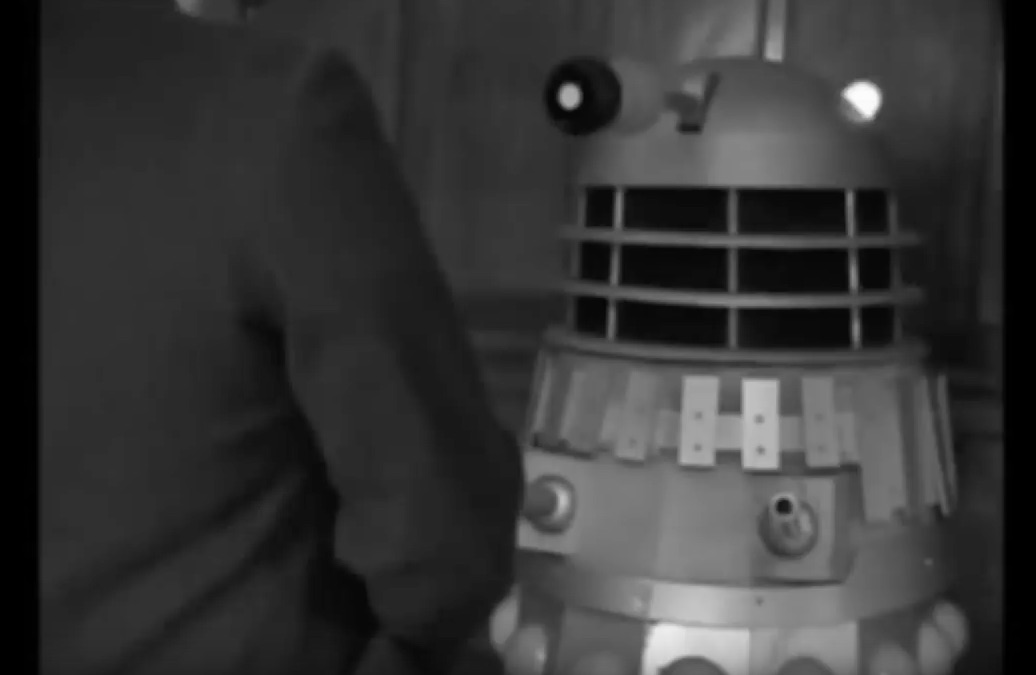
In that episode the Daleks want to extract some factor from humans. The Doctor offers himself to The Daleks for that purpose. But, his offer is refused not because The Doctor is not human, but because his travels through time have made him more than human.
In other words, The Daleks recognize The Doctor as being human, but more than human having been changed by frequent time travel.
Another piece of evidence is another Second Doctor story, The Wheel in Space.
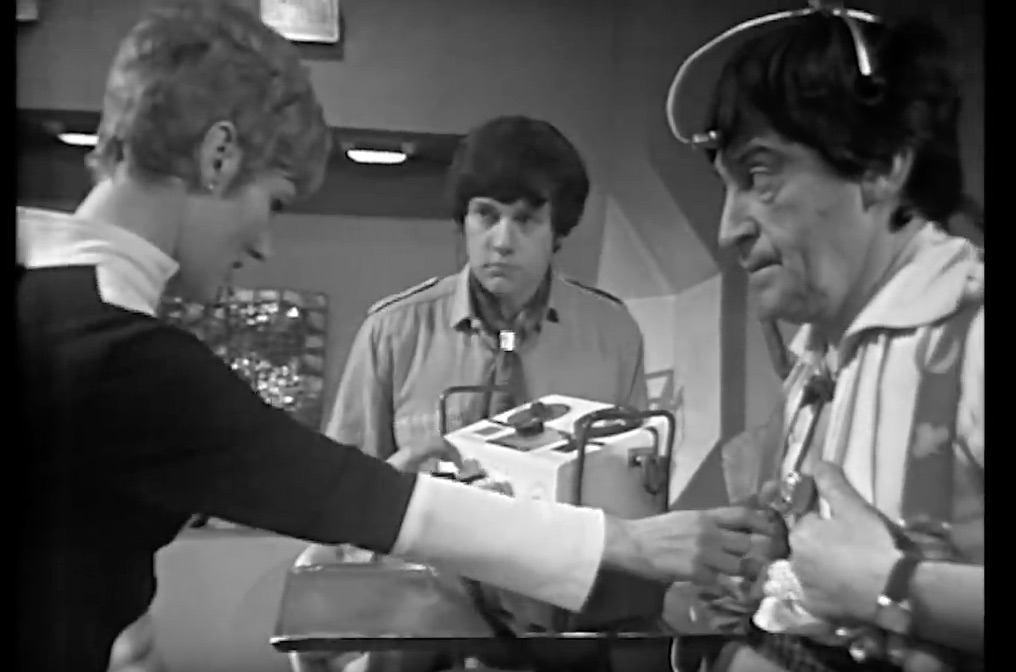
During that episode The Doctor undergoes a medical examination. For every Doctor from The Third Doctor and beyond, medical examinations result in exclamation from the attending physician about the strange heartbeat pattern - because there are two hearts in Time Lord physiology. But in this scene the attending physician notes nothing out of the ordinary.
Ergo - at that time the BBC thought of The Doctor as a human?











